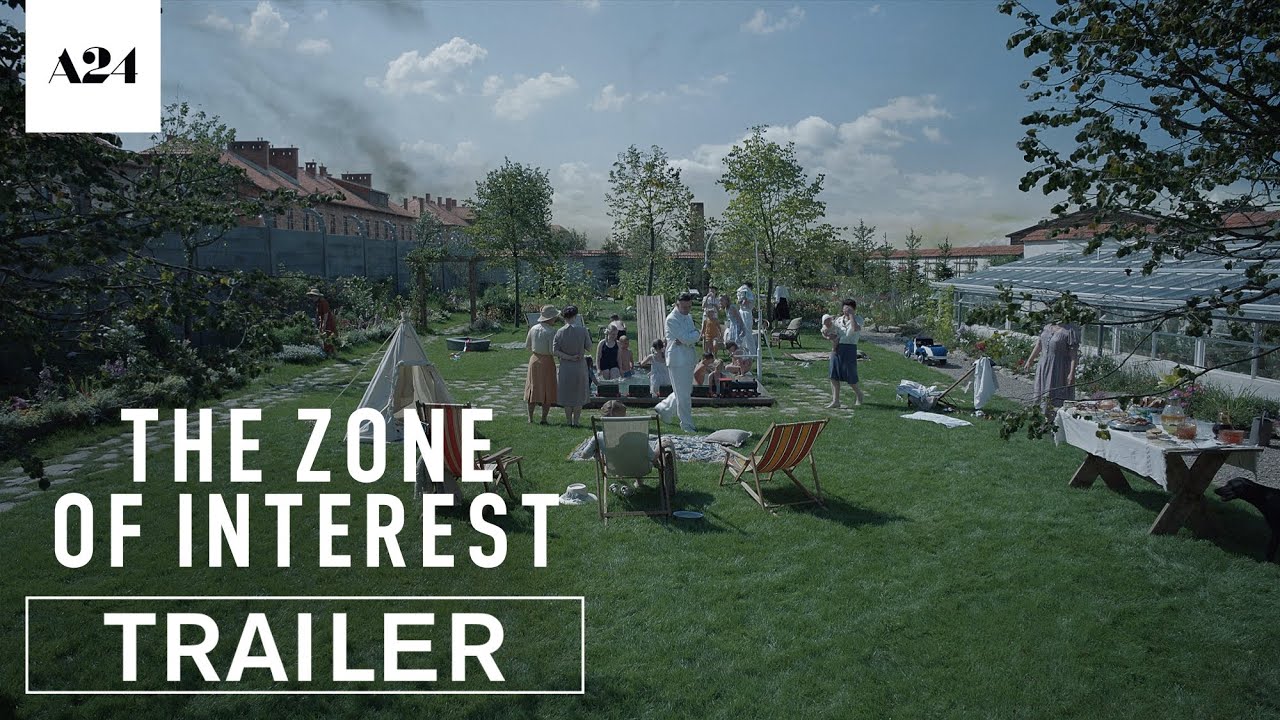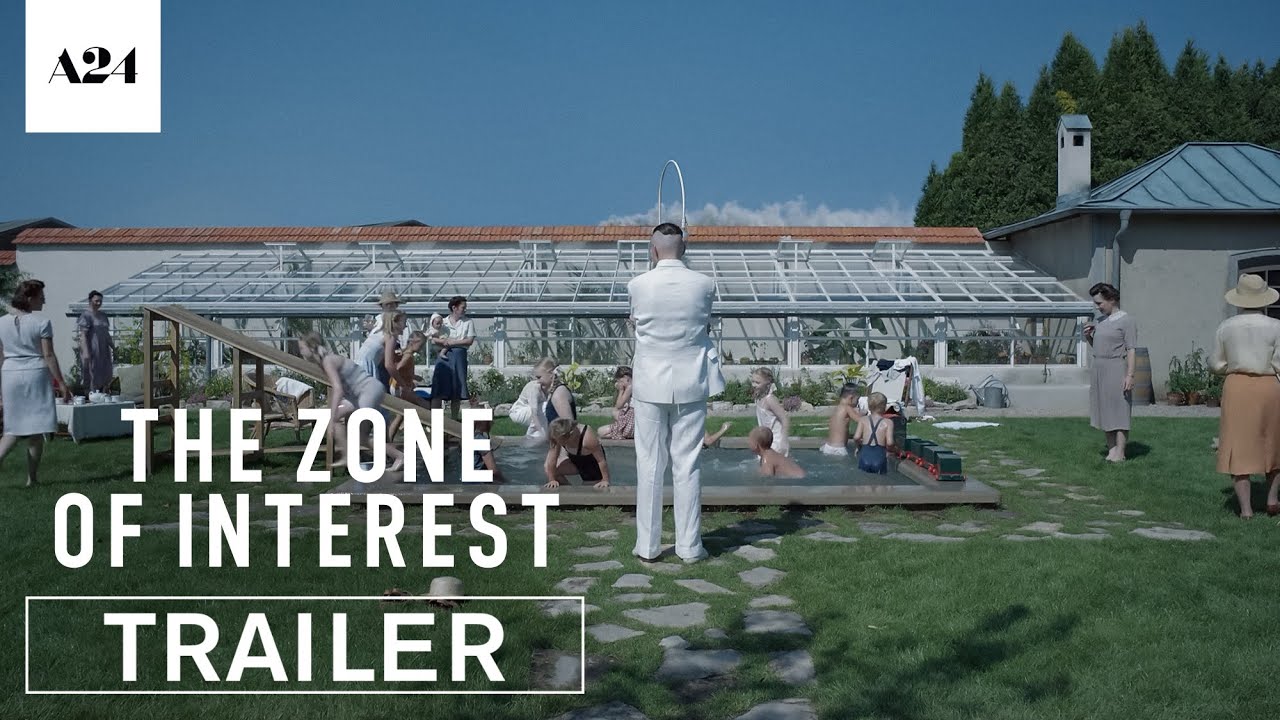Contemporary cinema often walks a fine line between entertainment and introspection, but Jonathan Glazer’s The Zone of Interest dives deep into darker territories, merging a haunting narrative to challenge viewers. Set against one of history’s most horrific backdrops, this film grips audiences with its unsettling storytelling, focusing on the stark contrast between everyday family life and the unspeakable horrors of Auschwitz. Exploring themes of normalcy, evil, and human connection, The Zone of Interest lingers in the mind long after the final credits roll.
As we unravel the compelling layers of this innovative film, it’s evident that its emotional weight and historical resonance make it a standout piece in contemporary cinema. Whether you’re a cinema enthusiast, a casual moviegoer, or someone who enjoys deep dives into film analysis, you’ll find The Zone of Interest demands both attention and reflection. So grab your popcorn (and maybe a box of tissues), because we’re about to embark on a riveting exploration of this mind-bending film.
Five Key Elements That Make The Zone of Interest Hauntingly Compelling

1. Subversion of Domesticity
One might think that a serene family life would play out in a typical setting, but The Zone of Interest spins that notion on its head. Imagine watching a family dinner while being starkly aware that just beyond their quaint garden, unspeakable atrocities are taking place. This juxtaposition throws viewers right into the heart of discomfort, similar to the moments in Married at First Sight where happy couples reveal hidden truths. Glazer beautifully captures this banality of evil, making us ponder how life can seem so untouched by horror.
2. Sensory Immersion
Now, if you’ve seen Glazer’s Under the Skin, you’ll know he has a knack for crafting immersive experiences. The Zone of Interest is no exception. With its striking cinematography and careful sound design, the film pulls you into its world. Laughter from the characters contrasts sharply with haunting visuals, creating a dissonance that leaves you uneasy yet irresistibly engaged. It’s reminiscent of the emotional rollercoaster found in films like 500 Days of Summer, where the highs and lows of romance feel painfully relatable.
3. Complex Characterization
Forget the one-dimensional villains of typical wartime dramas! The Zone of Interest introduces characters that are deeply flawed, allowing audiences to connect with them intimately. Glazer nudges us to explore their complexities, portraying love, desire, and moral ambiguity. Much like how we see real emotions and relationship developments in shows like Married at First Sight, the characters challenge our perceptions of right and wrong, making us examine our own moral compasses.
4. Historical Context and Its Echoes
The Zone of Interest doesn’t allow viewers to distance themselves from history; instead, it embeds real atrocities within its narrative. By choosing to depict the Holocaust’s grim realities, Glazer pushes the audience to confront uncomfortable truths about both the past and the present. In doing so, he compels us to reflect on issues like the continuing Israel And Hamas war, living under the shadow of unresolved historical narratives. It’s a stark reminder that history never truly fades away; it echoes in the realities we face today.
5. Emotional Subtext
Maintaining normalcy amidst chaos is a recurring theme in The Zone of Interest, mirroring struggles many face today. The psychological depth accents feelings of isolation and community, akin to contemporary stories of characters literally “five feet apart,” yet unified in their shared experiences of loss and grief. This emotional richness provides a fertile ground for audiences to reflect on their own connections amidst tumultuous times.
Back in Action: The Impact of The Zone of Interest on Modern Filmmaking
As we step back and observe the broader landscape of modern filmmaking, The Zone of Interest stands out as a pivotal work that pushes the envelope. Glazer’s artistic vision refreshes how we engage with uncomfortable subjects, steering the industry toward more meaningful storytelling. Rather than just depicting historical trauma, he forces us into the characters’ emotional depths, reminiscent of relationship-oriented films that explore the intricacies of love and moral judgment.
With the film’s emotional intensity layered atop a thought-provoking narrative, it encourages filmmakers to embrace character-driven explorations of our shared humanity. Not unlike the rise of characters in Paid in Full, who navigate their own complexities, The Zone of Interest sparks vibrant discussions around personal struggles against a backdrop of collective history, serving as an engaging pearl for filmmakers and viewers alike.

Innovative Wrap-Up
In conclusion, The Zone of Interest serves as more than just a film; it’s a powerful experience that demands our attention and self-reflection. Jonathan Glazer’s ability to intertwine relatable human experiences with profound historical narratives invites us to personally engage with the echoes of history. As we witness projects like The Zone of Interest illuminating the path for future filmmakers, we’re left pondering fundamental questions about our moral responsibilities in storytelling.
So the next time you grab those popcorn kernels, prepare for a cinematic experience that’s anything but typical. Dive amidst the layers of The Zone of Interest, and allow yourself to be taken on a journey that’s both haunting and necessary—an adventure worthy of the silver screen. And who knows? You might just find yourself revisiting the deeper meanings ingrained within this masterpiece long after the screen fades to black.
For more film analyses and the latest news on titles like The Zone of Interest, keep your eyes peeled at Best Movie News!
The Zone of Interest: Fun Trivia and Interesting Facts
Life Beyond the Lens
The Zone of Interest isn’t just a haunting narrative; it’s packed with trivia that movie buffs will love. For starters, did you know that the film is inspired by Martin Amis’s novel? It explores chilling themes that echo through literary history, similar to the eerie storytelling seen in shows like The X-Files. This narrative technique transforms the history of the Holocaust into a disturbingly intimate portrayal of human nature. Speaking of human connections, you might be interested to know that many on the Person Of Interest cast have made remarkable journeys in their careers, just like the actors in this intense film.
Cinematic Connections
Another fascinating tidbit is that the director’s vision draws parallels with the chilling undertones found in Jude Law’s movies. This deep dive into moral conflicts creates a shocking but thought-provoking experience. The way characters navigate their world reminds us of how artists like Pooh Shiesty channel their narratives into music, leaving audiences captivated. To add an unexpected twist, even sports fans will find connections; the Michigan Wolverines storied history parallels the intense competition we see in The Zone of Interest, where survival is at stake.
Imagining the Impact
In filming The Zone of Interest, the crew utilized practical effects and innovative filming techniques. Just think about how U-Haul Pods inspired the filmmakers’ ingenuity, crafting a chillingly immersive atmosphere that seems to pop right out of the screen. Fans of the film will find it exhilarating to explore the meticulous details put into every scene. Moreover, if you’re a sports lover, the tension felt in a Barcelona vs. Real Sociedad game resonates strongly with the underlying conflicts in the film. So, whether you’re screaming Lol! at a comedic twist or lost in the heartbreaking moments, this film has something for everyone, often mirroring our own lives and relationships in the most unexpected ways.






